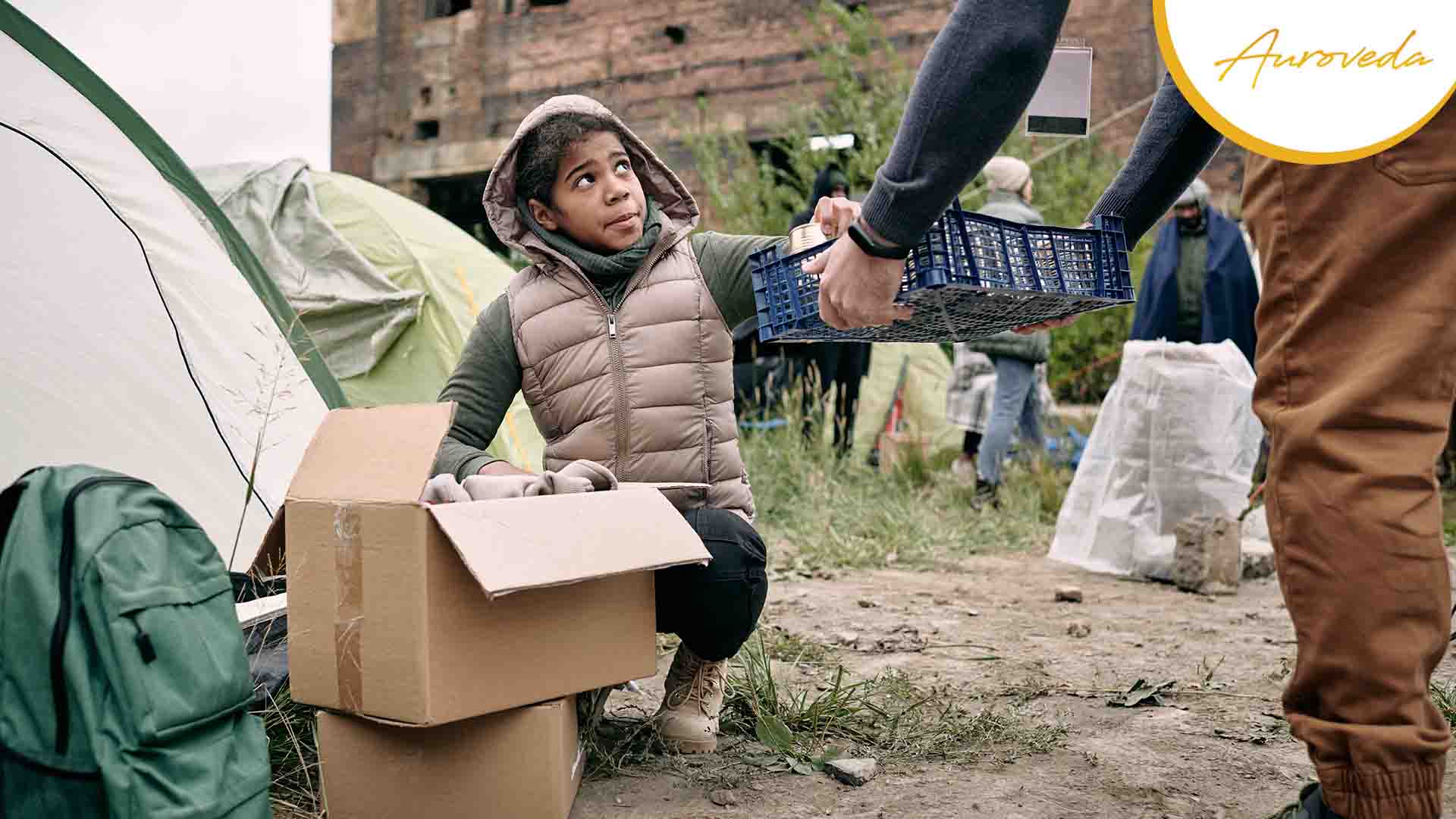There is a widening gap between the rich and the poor in today’s society. While some people enjoy all the necessities of living, many others find it difficult to make ends meet. Millions of individuals worldwide are impacted by the global problem of poverty. However, there are methods to assist the less fortunate people in your community. Many NGOs, such as Auroveda, work tirelessly to make it easier for communities to provide support.
Effective ways to make a difference in the lives of those who are less fortunate -
1. Volunteer at local shelters or community enters
Volunteering at nearby shelters or community centers is one of the most efficient methods to assist the less fortunate people in your area. These locations offer those in need sustenance, shelter, and other necessities. You can help these groups better serve those who need their services the most by giving your time and talents. To financially support these groups, you can also assist in planning events or fundraising activities.
2. Donate to charitable organizations
Another efficient way to assist the less fortunate people in your community is to make a financial donation to a charity organization. Numerous trustworthy groups devote their entire efforts to helping those in need. You can look up these groups online and select the one that most closely reflects your ideals and worldview. Living conditions for those who are less fortunate can significantly improve thanks to your contributions.
3. Support local businesses owned by underprivileged people
A great way to help underprivileged people with their financial situation is to support local companies they own. You can support these companies’ revenue generation and company expansion by buying their goods or services. Others in the community may then be given job chances as a result of this.
4. Donate essentials!
By giving away food, clothing, and other necessities, you can also assist the less fortunate individuals in your community. Non-perishable food products, gently used clothing, and other necessities are accepted by a lot of charities. These things can be given away to those in need, giving them access to the necessities of existence. To solicit contributions from others, you could also set up food or clothing drives in your neighborhood.
5. Offer your skills and services
If you have a particular skill or service that can benefit underprivileged people, consider offering it for free or at a reduced cost. For example, if you are a healthcare professional, you can offer free medical checkups to people in need such as the ‘Gift of Health’ program. If you are a lawyer, you can offer free legal advice to those who cannot afford it. By offering your skills and services, you can make a significant impact on the lives of those who are less fortunate.
6. Educate others about poverty
Many people are not aware of the extent of poverty in their communities. By educating others about poverty, you can raise awareness and inspire people to take action. You can organize seminars or workshops to educate others about poverty, its causes, and its effects. You can also use social media to share information and raise awareness about poverty in your community.
7. Volunteer at schools and mentor underprivileged students
Education is one of the most effective ways to break the cycle of poverty. By volunteering at schools and mentoring underprivileged students, you can help them improve their academic performance and increase their chances of success. You can also provide guidance and support to help them overcome any challenges they may face.
Millions of people experience poverty, which continues to be a worldwide problem. However, there are ways to help underprivileged people around you. By volunteering, donating, supporting local businesses, offering your skills and services, educating others, and mentoring underprivileged students, you can make a significant impact on the lives of those who are less fortunate. Remember that even small actions can make a big difference, and together we can work towards a world where everyone has access to the basic necessities of life.

